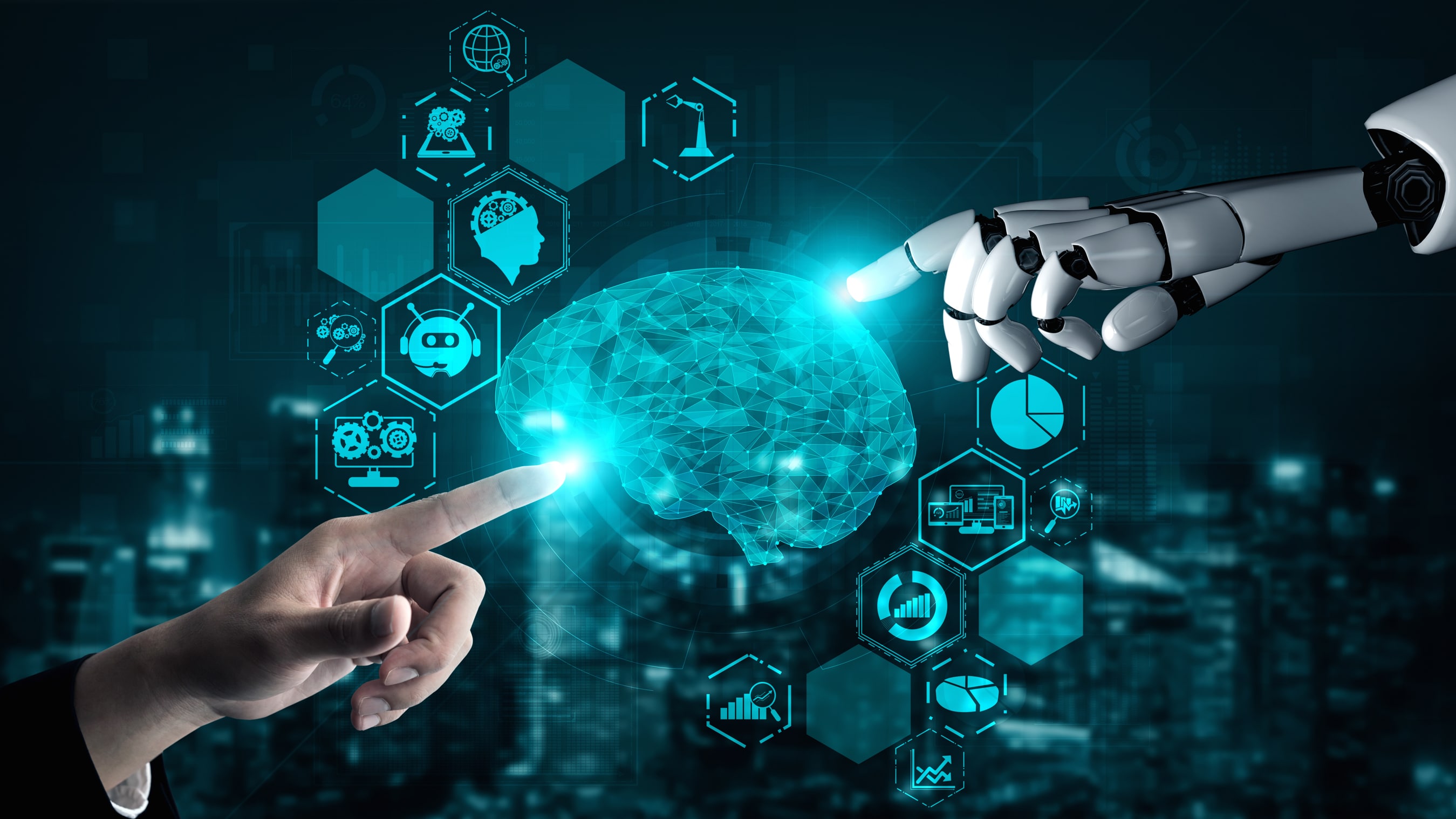Artificial Intelligence (AI) has become an integral part of modern life, influencing industries from healthcare to finance, and transforming the way we interact with technology. However, with its rapid advancements, several myths and misconceptions about AI have emerged. In this blog, we will debunk the top five AI myths and shed light on the realities behind this groundbreaking technology.
Myth 1: AI will replace humans entirely
The concern about AI-driven machines taking over the world is a widespread misconception, but it’s understandable and valid to have such apprehensions. While AI certainly excels at automating repetitive tasks and streamlining processes, it cannot replicate the essence of human intelligence. Crucial qualities like creativity, empathy, and emotional intelligence remain exclusive to humans, giving us a unique advantage over AI.
Instead of posing a threat to jobs, AI serves as a powerful tool to augment human capabilities, leading to enhanced productivity and novel opportunities. A perfect exemplification of this is PatientMetRx®, where we work to empower our customers to automate manual research and reporting processes, thereby saving up to 80% of their time. This newfound efficiency enables healthcare marketers, market research and PR & Communication agencies alike, to focus on delivering successful strategies to their clients, ultimately improving patient outcomes. By embracing AI in this manner, we unlock its potential to collaborate harmoniously with humans, ushering in a future of unprecedented progress and prosperity.
Myth 2: AI is only for big companies and tech giants
Contrary to this myth, AI technology is now accessible to businesses of all sizes. Through cloud-based services, libraries, and open-source frameworks, startups and small enterprises can incorporate AI into their products and services. This democratization of AI has fueled innovation and catered to diverse needs across various industries. At Talking Medicines and PatientMetRx®, we actively promote accessibility, empowering organizations of all sizes to leverage the transformative capabilities of AI technology. Together, we drive collective advancement and create a positive impact in society.
Myth 3: AI is inherently biased and unethical
It is true that AI systems can exhibit biases. Biases arise from the data used to train AI models, which reflects human prejudices. However, with the rise of ethical AI practices, researchers and developers are actively working to mitigate biases and create more fair and transparent AI systems. Responsible AI development involves diverse teams, rigorous testing, and continuous improvement to ensure AI solutions align with ethical guidelines. Responsible AI is at the heart of what Talking Medicines does. As a testament to our commitment, Talking Medicines recently published our Artificial Intelligence+ Framework. This framework exemplifies our dedication to ethical practices and transparency in AI development. “Our vision is to improve health outcomes for every patient, and to achieve this, we are at the cutting edge of Artificial Intelligence+. However, at the cutting edge, there are unknowns. To address these unknowns, we require a solid trust, safety, and ethical foundation to scale from. The use of an Artificial Intelligence+ framework to make the “right” decisions both ethically and commercially is crucial. We are strongly committed to maintaining the highest standards in ethics, compliance, and governance throughout our operations and output, ensuring that our AI-driven solutions not only deliver valuable insights but also foster trust and promote responsible practices.”
Myth 4: AI will achieve human-like consciousness
Movies and science fiction often depict AI as sentient beings with human-like consciousness, leading to fears of AI rebellion. However, current AI technologies, including the most advanced deep learning systems, lack self-awareness and true consciousness. AI remains a collection of algorithms that process data and provide responses based on patterns, without possessing emotions or subjective experiences. It is important to remember that AI, despite its remarkable capabilities, is ultimately limited by the data it has access to.
For a comprehensive understanding of AI’s workings, we invite you to watch the recording of our ‘Intro to Drug-GPT™’ LinkedIn Live session. In this session, NLP expert George Lysandrou explains how our proprietary Drug-GPT™ functions and delves into the underlying mechanisms of all things GPT. This recorded session sheds light on the amazing insights AI can provide while emphasizing the significance of its data-driven nature. By watching the recording, you can gain valuable insights into the capabilities and limitations of AI, ensuring you have a clear understanding of its potential applications in various domains.
Through such initiatives, we aim to foster a deeper understanding of AI and its applications, ensuring that everyone can harness its potential responsibly. By staying informed about the capabilities and limitations of AI, we can utilize this revolutionary technology to transform industries, improve lives, and drive positive change in the world. Embracing AI with ethical principles and a clear understanding of its workings, we can work hand in hand with this technology, forging a bright future where AI empowers and augments human potential, rather than replacing it.
Myth 5: AI is a mysterious, magical black box
The portrayal of AI as an enigmatic, almost mystical entity is a common misconception perpetuated by popular media. While AI technology may seem complex and intricate, it is not an inexplicable black box. As industry leaders in advanced data science, Talking Medicines and PatientMetRx® possess in-depth knowledge and expertise in AI applications such as large language models (LLMs), Machine Learning (ML) and Natural Language Processing (NLP). We understand that AI is grounded in mathematics, statistics, and computer science, making it an accessible and comprehensible field.
To address any uncertainties surrounding AI and to promote responsible practices, we are committed to maintaining the highest standards in ethics, compliance, and governance throughout our operations. Transparency is at the heart of our approach, ensuring that our AI-driven solutions are not only accurate and valuable but also trustworthy and unbiased.
We believe in fostering a clear understanding of AI’s capabilities and limitations. As experts in the field, we leverage AI to empower our clients with valuable insights, improve efficiency, and advance the quality of healthcare services. By dispelling the notion of AI as an impenetrable black box, we aim to lead the way towards a future where AI collaborates harmoniously with humans, augmenting our abilities and driving positive change across industries.
In conclusion, gaining a clear understanding of AI is paramount to utilizing its potential responsibly. By dispelling common myths surrounding AI, we can recognize it as a tool that complements human capabilities rather than a source of apprehension. As AI technology continues to advance, it is crucial to prioritize transparency and ethical practices, ensuring that AI-driven solutions benefit society as a whole.
Embracing AI with this clarity and knowledge will empower us to forge a future where humans and intelligent machines work together harmoniously. Rather than replacing humans, AI can augment our abilities, leading to new opportunities, more efficient workflows, and improved outcomes across various industries. By staying informed and fostering responsible AI development, we can unlock the full potential of this transformative technology and create a world where AI enriches our lives, enhances problem-solving, and contributes to a better, more interconnected society.




